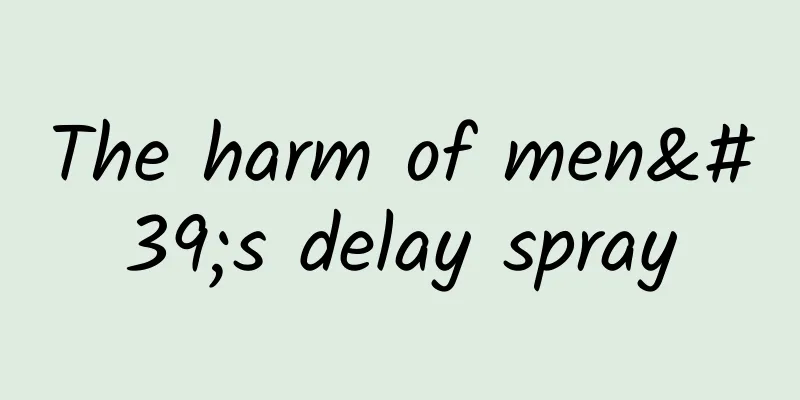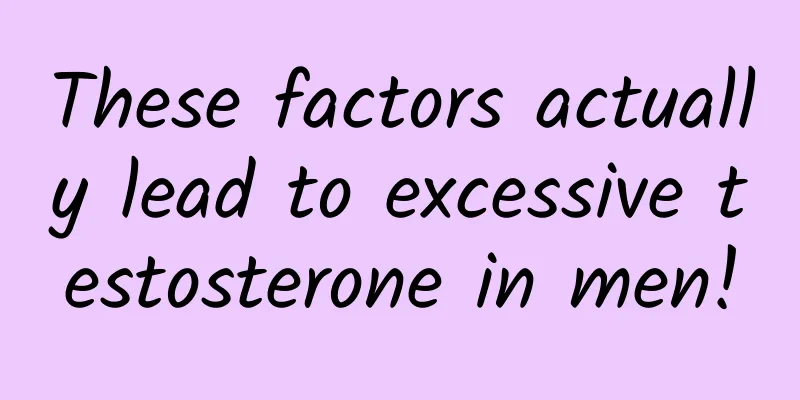What is Asthenozoospermia

|
Sperm quality is the basis of male fertility, and more and more modern men are suffering from sperm problems, leading to more and more infertile men, which increases the burden of men's lives. Among them, sperm quality problems are very common, with asthenozoospermia having the greatest impact and being one of the more difficult to treat modern male diseases. Let's take a look at what asthenozoospermia is. Asthenozoospermia refers to a condition in which the number of sperm with forward motion (grades a and b) in semen is less than 50% or the number of sperm with grade a motion is less than 25%. Asthenozoospermia is also known as low sperm motility. 1. Frequent use of chemicals. Men are advised to wait a few days before wearing clothes from dry cleaners, as dry cleaning agents can affect male sexual function. They also go to bed late, do not exercise, and like to eat foods with special additives, such as duck necks. 2. Failure to prevent infectious diseases that may harm male fertility, such as mumps and sexually transmitted diseases. 3. Failure to seek timely treatment when the testicles become enlarged, hardened, uneven, or painful. 4. Living or working in a noisy environment. According to data, men who live in a noise environment of 70 to 80 decibels for a long time will have a weakened sexual function, and those who live in a high-noise environment of more than 90 decibels will have a disordered sexual function. 5. Long-term masturbation. Masturbation can cause slow congestion of the prostate, leading to aseptic prostatitis, affecting the nutritional content, quantity, viscosity, acidity and alkalinity of semen and inducing infertility. 6. Smoking, drinking and eating greasy food. The reproductive cells in the testicles are affected by the harmful components in tobacco, which makes the sperm quantity and quality poor, and often leads to infertility or deformed babies. Excessive drinking can lead to chronic alcohol poisoning, sperm dysplasia or loss of activity. Foods not to eat ⑴ Celery: Studies have shown that celery can reduce the number of sperm in men, so patients should avoid eating celery. ⑵ Oysters: They are cold in nature and can easily damage yang energy. Men who are infertile due to cold sperm should not eat them. ⑶Other foods: such as winter melon, raw cucumber, cucumber, bitter melon, banana, watermelon, tofu, mung bean, snails, pepper, Sichuan pepper and other raw, cold and spicy foods. |
<<: What happens when a boy can't get hard?
>>: How to treat asthenozoospermia
Recommend
A mole on the middle of a man's chin
Moles on the chin are a common type of mole, but ...
What does cavernous corpus congestion mean?
When a male friend has an erection, it is actuall...
The best time to treat hemorrhage
Urinary incontinence is a disease. After eliminat...
Lower abdominal pain after prolonged erection
What is the reason for lower abdominal pain after...
There are black spots on the scrotum. Do you know why?
Some people will find some black spots on their s...
There are small white particles on the penis
Men's andrological diseases often trouble men...
Three major treatments for urinary tract infections
When urinating, do you feel pain, frequent urinat...
Does the delay spray have any side effects?
Delay spray acts on the male genitals, thereby de...
There is a little blood when the sperm is ejected from the body
There are different ways for couples to avoid eja...
What is the best kidney-tonifying food for men?
Traditional Chinese medicine believes that the ki...
How to treat kidney yang deficiency? Three major Chinese medicine treatments are effective
Kidney deficiency is one of the most common disea...
What to do if you are diagnosed with left kidney deficiency
Urban life is fast-paced and stressful. Many youn...
Why do men often have erections?
In daily life, if men often have erections, it is...
Causes of premature aging of men's face
Although compared with women, men do not care muc...
What should men do if their scrotum becomes itchy due to excessive pubic hair?
Don’t think that itching only occurs in women. Ac...









